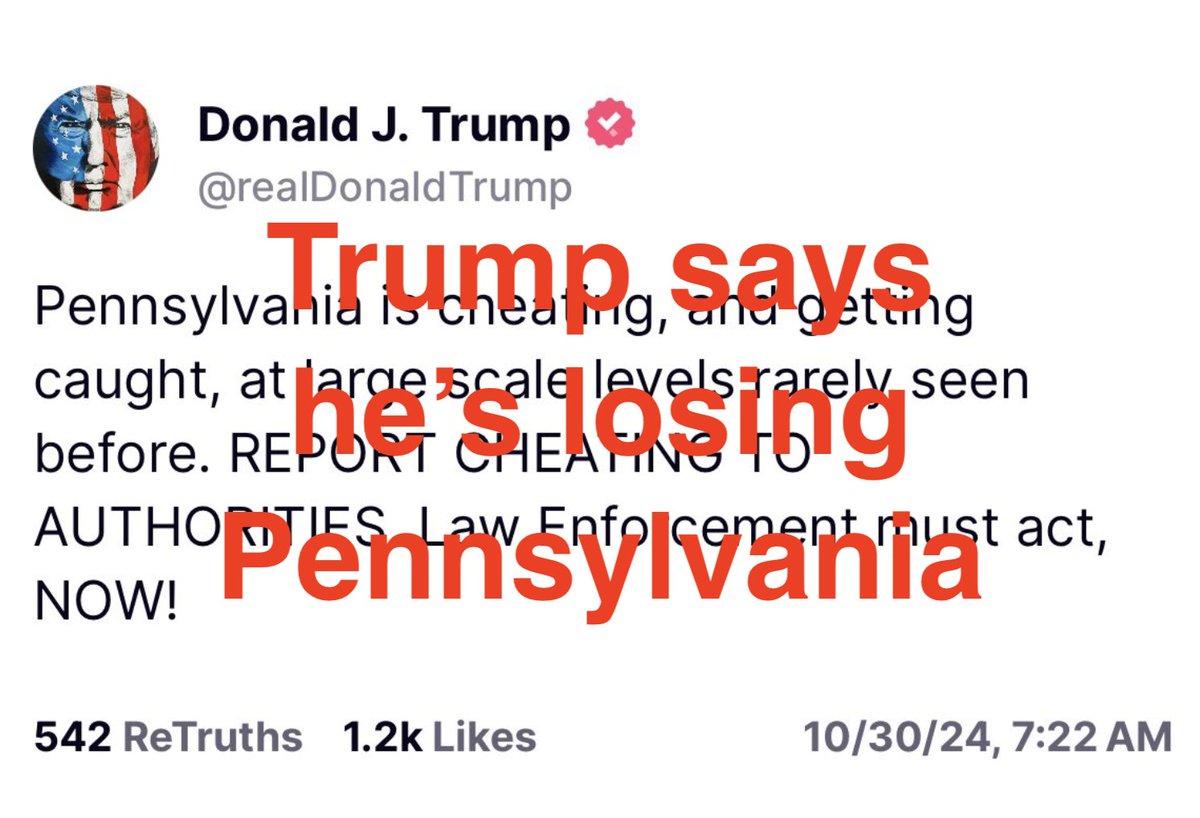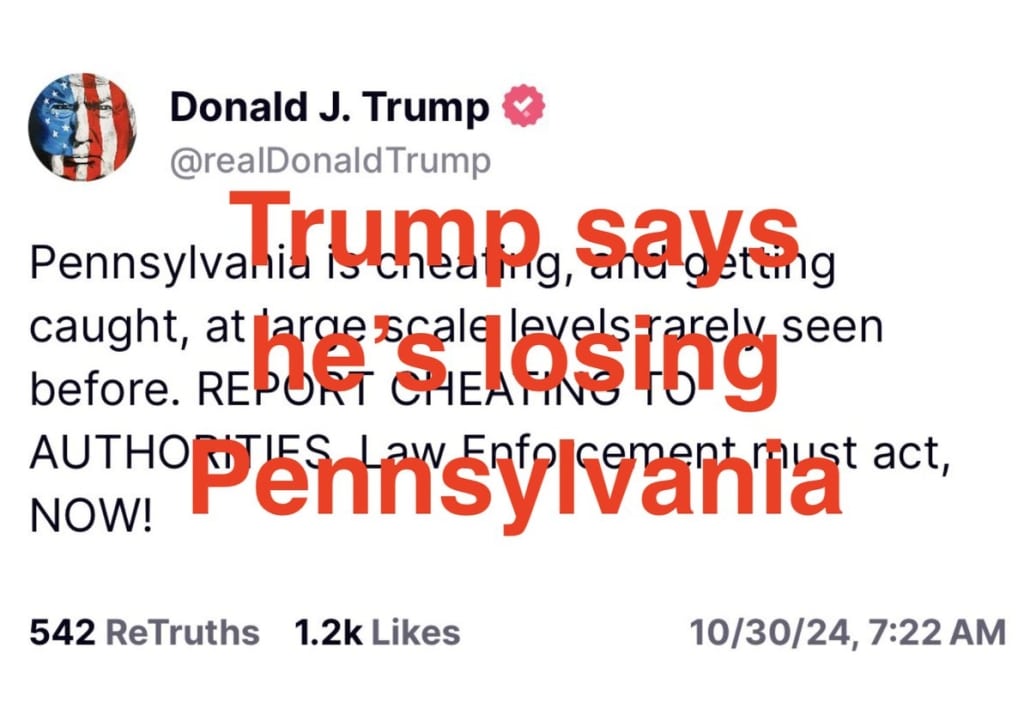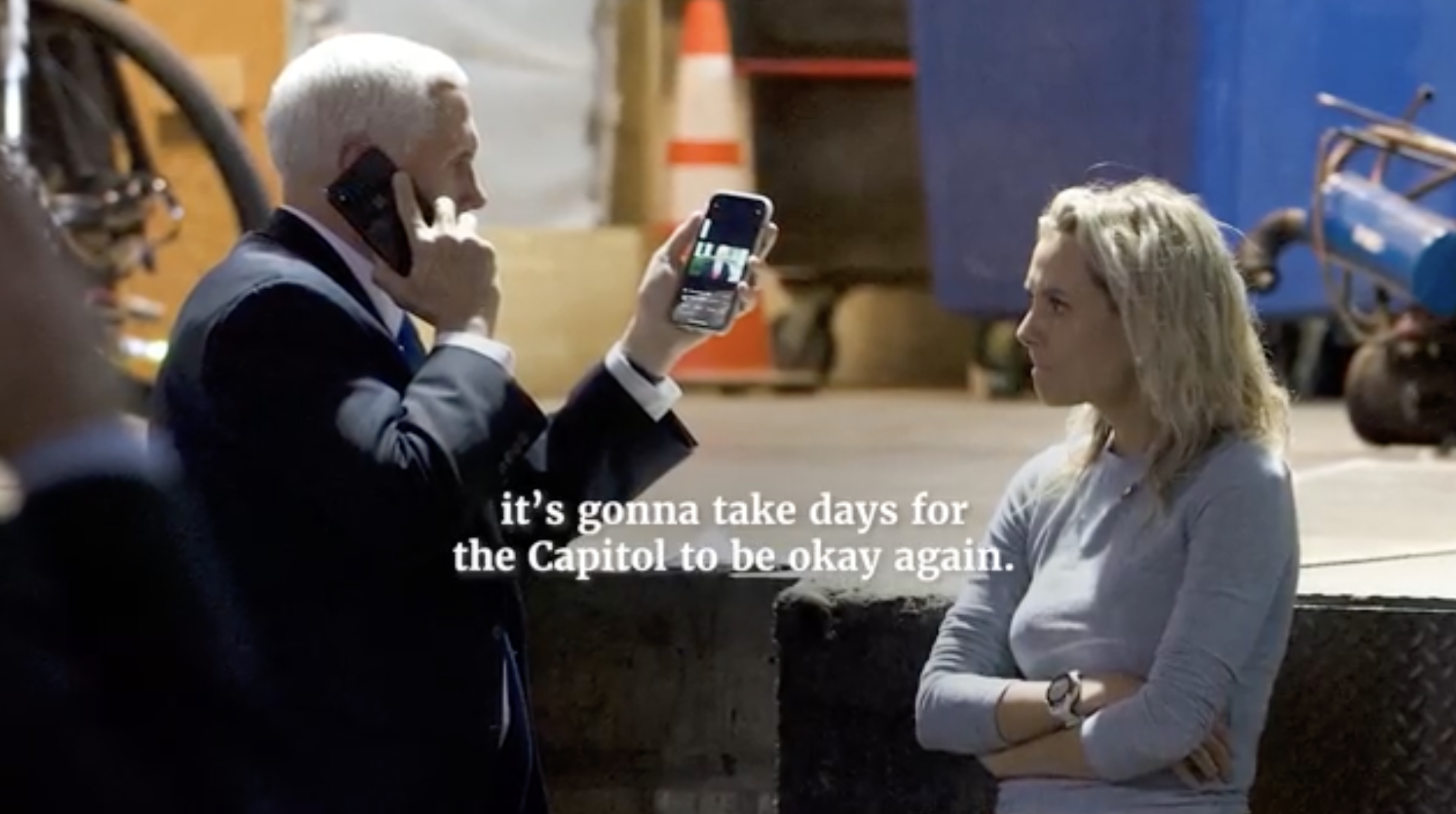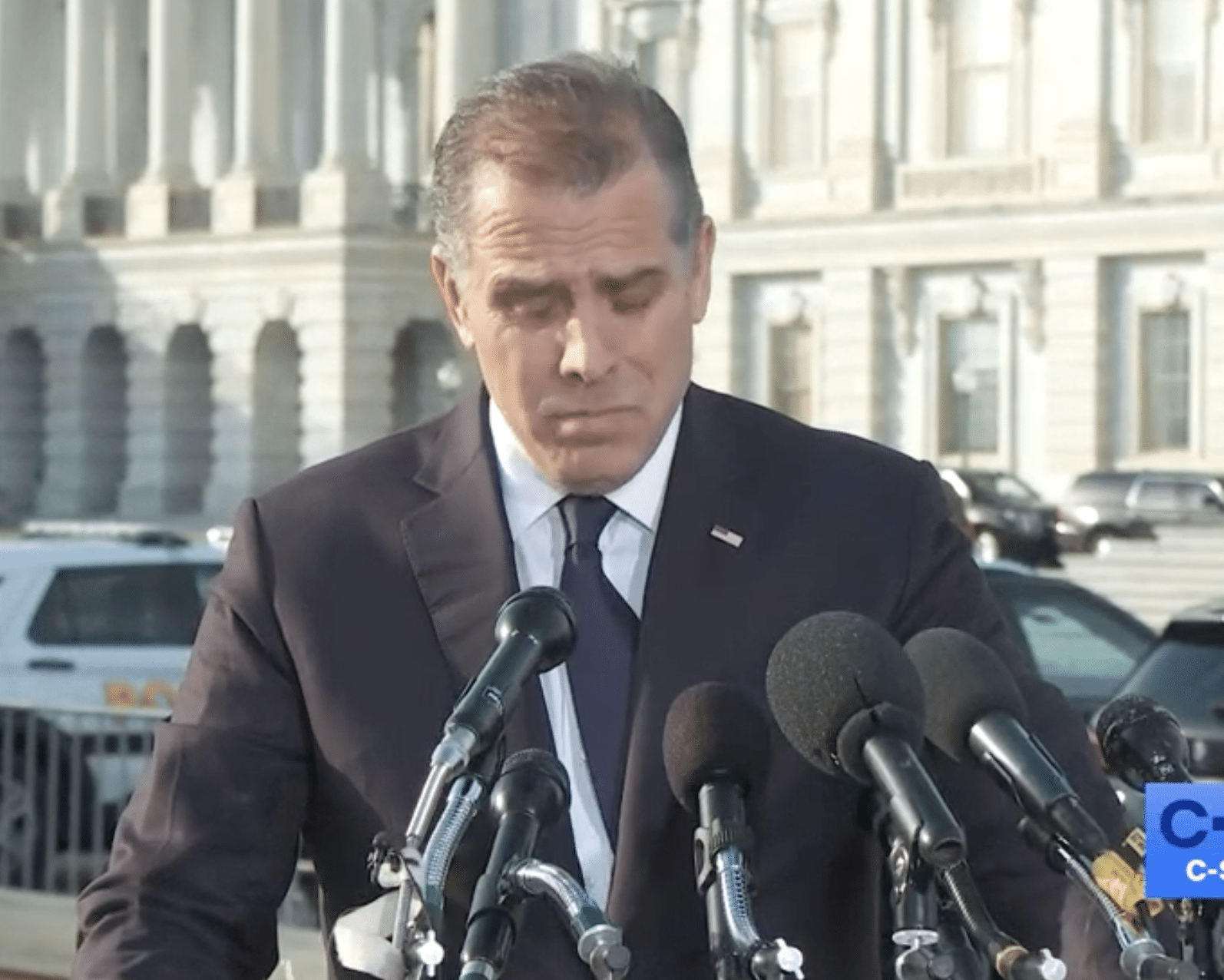On the Legacy of Bill Barr’s Luzerne County Intervention
Somewhere, I have a half-finished post about the way that Bill Barr refused to cooperate with three different Inspector General Reports reviewing his actions — his actions during May and June 2020 protests in DC, his intervention in the Roger Stone sentencing, and his decision to seek out a voter fraud cause he could publicize. (There’s at least one more investigation, probably the one into subpoenas targeting journalists and Congress, that is ongoing.)
I hope to return to that if we still have a democracy next week.
But I want to review the third of these, because it hangs over DOJ’s ongoing investigation of a number of suspect election crimes, including the arson targeting ballot drop boxes in Oregon and Washington earlier this week.
As you may recall, someone — who turned out to be a mentally disabled man — threw away nine mail-in ballots in Luzerne County, PA in September 2020. The US Attorney for Middle District of Pennsylvania in Scranton, David Freed, big-footed into the investigation, in part (the IG Report discovered) because Bill Barr was looking for some case to talk about. Barr told Trump about the case and Trump made public comment.
…These ballots are a horror show. They found six ballots in an office yesterday in a garbage can. They were Trump ballots—eight ballots in an office yesterday in—but in a certain state and they were—they had Trump written on it, and they were thrown in a garbage can. This is what’s going to happen. This is what’s going to happen, and we’re investigating that. It’s a terrible thing that’s going on with these ballots. Who’s sending them, where are they sending them, where are they going, what areas are they going to, what areas are they not going to?… When they get there, who’s going to take care of them? So, when we find eight ballots, that’s emblematic of thousands of locations perhaps.
After which, Barr and Freed decided to release a public comment about the investigation, including that all nine of the discarded ballots had been cast for Trump (that turned out to be inaccurate; Freed issued a corrected statement days later). By the time Freed made that statement, it was pretty clear they weren’t going to charge the man involved; nevertheless, it wasn’t until the following January before the US Attorney’s Office revealed there would be no charges. Nevertheless, Freed also sent a letter to the county providing still more details from the investigation.
Barr refused to be interviewed for the Inspector General investigation, though his attorney kept providing new statements that didn’t answer all the questions about his behavior (one of my favorite Barr comments is that of course he didn’t advertise this case for political reasons because that would be inconsistent with his public statement on December 1 that there had been no decisive voter fraud). Barr spun the entire thing as an effort to reassure people.
Barr told the OIG in his letter to the Inspector General that he “favored and authorized putting out information along the lines of [MDPA’s] September 24 statement,” and Freed told the OIG that Barr specifically approved inclusion of investigative details in the statement, including the fact that “all nine ballots were cast for presidential candidate Donald Trump.” Barr stated in his letter that he favored including “the basic facts that prompted the investigation” in the MDPA statement as a way to quell public concerns about election integrity. Specifically, Barr stated: “Due to the involvement of local officials and county witnesses, I thought that further revelations of information about the incident were likely, potentially could come at any time, and could be mistaken.” Barr further wrote:
…I was concerned that the vagueness of the local officials’ statement, coupled with the Department’s silence, was contributing to undue speculation and potentially unsettling the public more than necessary about the election’s integrity. I considered this was a matter in which the public interest could likely be best served by getting out in front of the story by recounting the basic facts that prompted the investigation. Among other things, doing so would help dispel needless mystery and speculation by delimiting the nature and scope of the issue being investigated.
Barr’s letter went on to assert that a public statement would “have a salutary deterrent effect” and serve as “a reminder to election administrators” of their responsibility to safeguard election integrity. Barr ultimately stated that he had determined, in his judgment, that “a strategy of remaining silent” about details of the Luzerne County ballot investigation “would have ended up doing more harm to the public interest than getting out in front with a more forthcoming statement in the first place.”76 Freed, for his part, told us that he believed releasing details about the investigation was important because it was the “best way” to keep the public officials running these elections “honest,” and because it would alert military voters that their ballots may have been discarded.77
In comments submitted to the OIG after reviewing a draft of this report, Barr stated that it was important at the outset to reassure the public “that there was a legitimate basis for the federal government to take over the investigation.” Barr continued: “The key fact that justified the federal government taking over the investigation was that only Trump ballots—no Biden ballots—had been found discarded.” Barr added that this fact was a “red flag” for investigators and “suggested that the discarding of ballots was not random or accidental, but potentially intentional.” In comments submitted after reviewing a draft of this report, Freed’s counsel echoed this sentiment, stating: “Had the statement not included [that the discarded ballots were all for President Trump], it would have omitted the operative fact that provided the predicate for federal involvement and would have left the public completely confused.” We found that this concern expressed by both Barr and Freed about federal involvement could just as easily have been satisfied by stating that all of the ballots were for the same presidential candidate, rather than identifying a particular candidate, which would have avoided injecting partisan considerations into a public statement by the Department. Moreover, the MDPA statement includes no information about the choices of the voters in the district’s congressional race, which would have been equally relevant to establish federal jurisdiction in the matter.
76 We were struck by the similarity between the justifications presented here and the explanation former FBI Director James Comey gave during our review of his conduct in advance of the 2016 election. In explaining why he announced to Congress that the FBI had resumed its investigation of then presidential candidate Hillary Clinton less than 2 weeks before the 2016 election, Comey told the OIG that he had determined, in his own judgment, that “there was a powerful public interest” in commenting on the Clinton email investigation, and that it would have been “catastrophic” to the Department and the FBI to not do so. DOJ OIG, A Review of Various Actions by the Federal Bureau of Investigation and Department of Justice in Advance of the 2016 Election, Oversight and Review Division Report 18-04 (June 2018), https://oig.justice.gov/reports/review-various-actions-federal-bureau-investigation-and-department-justiceadvance-2016, 365.
77 Neither Barr nor Freed, nor any witness we spoke to, suggested that § 1-7.400(C)’s second exception—permitting comment on investigations when “release of information is necessary to protect the public safety”—applied here.
Ultimately, DOJ IG found the whole thing to be wildly inappropriate, but because of the discretion afford the Attorney General to share information with the President and make public comment, it said that it could not find that Barr had engaged in misconduct; it did find that Freed had engaged in misconduct, both by blabbing about an ongoing investigation and doing so without consulting with Public Integrity before doing so.
DOJ referred both Barr and Freed to the Office of Special Counsel for a review of whether this was a Hatch Act violation.
We concluded that the MDPA statement did not comply with the DOJ policy generally prohibiting comment about ongoing criminal investigations before charges are filed; however, we did not find that either Barr or Freed committed misconduct because of ambiguity as to the applicability of Barr’s authority to approve the release of the statement pursuant to 28 C.F.R. § 50.2(b)(9). We found that Freed violated the DOJ policy prohibiting comment about ongoing criminal investigations before charges are filed when he publicly released his letter to Luzerne County officials. We found that Freed also violated DOJ policies requiring employees to consult with PIN before issuing a public statement in an election-related matter and requiring U.S. Attorneys to coordinate comments on pending investigations with any affected Department component—in this case, the FBI. Finally, while we were troubled that Barr relayed to President Trump investigative facts about the Luzerne County matter, we concluded that Barr’s decision to provide that information to President Trump did not violate DOJ’s White House communications policy because the policy appears to leave it to the Attorney General’s discretion to determine precisely what information can be shared with the President when a communication is permissible under the policy, as we found was the case here.
We make a number of recommendations in this report. First, as DOJ policy does not address what information Department personnel may include in a statement that is determined to be necessary to reassure the public that the appropriate law enforcement agency is investigating a matter or to protect public safety, we recommend that the Department revise this policy to require that the information contained in a statement released pursuant to JM 1-7.400(C) be reasonably necessary either to reassure the public that the appropriate law enforcement agency is investigating a matter or to protect public safety. Second, we recommend that the Department make clear whether the Justice Manual’s Confidentiality and Media Contacts Policy, Justice Manual § 1-7.000, applies to the Attorney General. Third, we recommend that the Department clarify its policies to address whether any of the provisions of 28 C.F.R. § 50.2 remain Department policy in light of the existence of the Confidentiality and Media Contacts Policy contained in the Justice Manual. Fourth, if 28 C.F.R. § 50.2(b)(9) remains valid Department policy, we recommend that the Department require that requests to the Attorney General or Deputy Attorney General for approval to release information otherwise prohibited from disclosure and any approval to release such information pursuant to § 50.2(b)(9) be documented. Lastly, we recommend that the Department consider revising its White House communications policy to clarify what information can be disclosed to the White House in situations where the policy permits communication about a contemplated or pending civil or criminal investigation.
As noted above, the federal Hatch Act prohibits executive branch employees from using their “official authority or influence for the purpose of interfering with or affecting the results of an election.”89 The U.S. Office of Special Counsel has sole jurisdiction to investigate Hatch Act violations.90 Because the circumstances described in this report raise a question as to whether these former Department officials’ actions violated the Hatch Act, we are referring our findings to the Office of Special Counsel for its review and determination of that issue.
It’s not entirely clear how many of DOJ IG’s recommendations DOJ has implemented since this report was released in July.
But one way or another, the conduct described in this report would look indistinguishable from the investigations currently ongoing. That is, weighing in to talk about whether specific election crimes were being committed by Trump or Harris supporters (or none of the above, as was the case in Luzerne and may be the case if the Northwest arsonist really is motivated by Gaza, as the incendiary devices imply) would be deemed a violation of DOJ guidelines.
DOJ is only supposed to make comments to reassure people that something is under investigation. DOJ has done so, formally, in Washington.
“The US Attorney’s Office and the FBI want to assure our communities that we are working closely and expeditiously together to investigate the two incendiary fires at the ballot boxes in Vancouver, Washington, and the one in Portland, Oregon, and will work to hold whoever is responsible fully accountable,” US Attorney Tessa M. Gorman and Greg Austin, acting special agent in charge of the FBI’s Seattle office said in a statement Tuesday.
But you are not going to hear more than that unless and until DOJ charges someone.
On September 4, at the very press conference where he rolled out the indictment against the useful idiots being secretly paid by RT, on the very last day before the election blackout would go into place, Merrick Garland discussed the Election Threats Task Force that Lisa Monaco put into place back in June 2021.
DOJ has made statements about specific crimes — including the one Elon Musk is suspected of committing, as well as more general efforts to prosecute Election Fraud.
I promise you, that’s all you’re going to get unless charges are filed.










